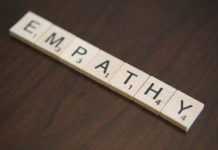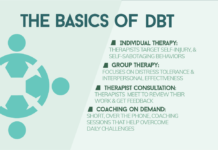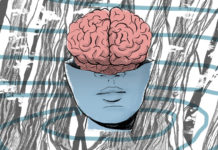New Book Deconstructs Ideology of Cognitive Therapy
CBT forwards a hyper-rational perspective of human suffering that complements a managerialist culture of efficiency and institutionalization in the Western world.
Traditional South African Healers Use Connection in Suicide Prevention
Study finds that traditional healers in South Africa, whose services are widely used by the country’s population, perform important suicide prevention work.
Study Finds Hearing Voices Groups Improve Social and Emotional Wellbeing
Hearing Voices Network self-help groups are an important resource for coping with voice hearing, study finds.
Therapist Empathy Predicts Success in Psychotherapy
An updated meta-analysis reveals that therapist empathy is a predictor of better psychotherapy outcomes.
The Effects of Practicing Psychotherapy on Therapists’ Personal Lives
A new study, published in Psychotherapy Research, explores how having a career in psychotherapy affects therapists’ personal lives.
New Study Investigates Negative Side Effects of Therapy
Researchers find that nearly half of cognitive behavioral therapy (CBT) patients experience treatment side effects.
Antidepressants Not Superior to Psychotherapy for Severe Depression
On Wednesday, JAMA Psychiatry released a meta-analysis comparing the results of cognitive-behavioral therapy and antidepressant medication in severely depressed populations. Currently, many practice guidelines suggest that antidepressants be used over psychotherapy for major depressive disorder. The analysis, however, found that “patients with more severe depression were no more likely to require medications to improve than patients with less severe depression.”
Madness and the Family, Part III: Practical Methods for Transforming Troubled Family Systems
We are profoundly social beings living not as isolated individuals but as integral members of interdependent social systems—our nuclear family system, and the broader social systems of extended family, peers, our community and the broader society. Therefore, psychosis and other forms of human distress often deemed “mental illness” are best seen not so much as something intrinsically “wrong” or “diseased” within the particular individual who is most exhibiting that distress, but rather as systemic problems that are merely being channeled through this individual.
The Conflicts That Result From Globalizing Euro-American Psychology in India
Researchers examine the transformation of work, life, and identity in India as a result of Western corporate and psychological culture.
Aliveness and Social Justice: Teaching the Principles and Practices of Open Dialogue
Over the past seven years, I have been teaching open dialogue principles and practices in a variety of settings. This blog will focus on the development of a training program, now based in Manhattan, and what I’ve learned from running this program and teaching this approach in the US.
Testifying in Vermont: Forced Drugs
Vermont Governor Shumlin recently suggested a change to state law that would accelerate the process under which a person could be forced to take antipsychotic drugs against her will. The House Human Services Committee reviewed this proposal and I was asked to testify. What follows are my comments.
Dialectical Behavior Therapy Reduces Self-Harm and Suicide Attempts
A new meta-analysis finds that DBT reduces self-harm, suicide attempts, and reduces the frequency of psychiatric crisis service utilization.
Therapy Recommended As First Line Treatment for Depression
Following an extensive systematic review of treatments for major depression, the American College of Physicians (ACP) issued a recommendation to clinicians suggesting cognitive behavioral therapy (CBT) as a first-line treatment for major depressive disorder along with second-generation antidepressants. The results of the review revealed that CBT and antidepressants have similar levels of effectiveness but that antidepressants present serious side-effects and higher relapse rates.
Does Psychotherapy Reproduce or Disrupt Neoliberal Capitalism?
Researchers explore neoliberal influences on interactions in psychotherapy and question whether the radical potential of psychotherapy can counter prevailing social systems.
How to Promote Community Inclusion in Mental Health Practice
Practitioners and public leaders identify methods and barriers for integrating those diagnosed with mental health issues into community life.
Psychodynamic Therapy Revealed to be as Efficacious as Cognitive Behavioral Therapy
Meta-analytic study finds that psychodynamic therapy outcomes are equivalent to those of CBT and other empirically supported treatments.
United Nations Report Calls for Revolution in Mental Health Care
In a new report, the United Nations Special Rapporteur on the right to health, Dr. Dainius Pūras, calls for a move away from the biomedical model and “excessive use of psychotropic medicines.”
Integrating Indigenous Healing Practices and Psychotherapy for Global Mental Health
As the Global Mental Health Movement attempts to address cross-cultural mental health disparities, a new article encourages integrating traditional healing practices with psychotherapy.
Finding Clarity Through Clutter
For the last three years, I have been working with people, labeled "hoarders," who have become overwhelmed by their possessions in their homes. This has been some of the most interesting, challenging and thought-provoking work I have ever done. It is also an area that, I think, highlights all of the issues that challenge us in helping people who feel overwhelmed, for whatever reason.
Why Some Children with Depressed Parents Show Resilience
Children of parents who suffer from depression have a severely heightened risk of mental health problems, but new research points to several factors that seem to strengthen young peoples’ resilience and predict good mental health.
Doing It Alone Together: Core Issues In Dutch Self-Managed Residential Programs
For the last six years we, a group of researchers, social work students, peer experts, and social professionals associated with the Amsterdam University for Applied Sciences, have been studying and facilitating the development of self-managed programs in homelessness and mental health care in the Netherlands. With our research we want to contribute to the development of new and existing programs through critical reflection. With this blog, I hope to share some of our findings, to give back to the respites from which we learned so much.
Data Challenges Superiority of Manualized Psychotherapy
New data fails to support the promotion of manualized psychotherapy as superior to non-manualized forms of psychotherapy.
Correcting Misconceptions of Trauma-informed Care with Survivor Perspectives
Trauma-informed approaches have the potential to promote recovery but must involve survivors and service-users to prevent the experience of retraumatization within psychiatric and mental health services.
An Essay on Finnish Open Dialogue: A Five-Year Follow-Up
It has been five years since I traveled to Western Lapland in Finland to film my documentary “Open Dialogue” on their Open Dialogue Project—the program, as I stated in the film, presently getting the best long-term statistical results in the world for the treatment of first-episode psychosis. My film came out four years ago, and since then I have been screening it around the world, giving lectures about Open Dialogue and my experience in Finland, participating in regular conferences and Q&A sessions about it, receiving daily emails, Facebook messages, blog and Youtube comments about it (as it’s now been free on Youtube for a year), and keeping in regular contact with some of the folks who work there. But I haven’t shared many of my updated opinions in writing, so I wish to do so now.
A Conversation about Having Conversations about Psychiatry
In spite of constantly increasing opportunities to tell different stories to the canonical story of bio-psychiatry, it can be risky for academics to voice a different perspective than the mainstream model of mental illness. In this conversation, a communication professor and a psychology professor discuss their challenges and personal experiences with going against the grain, such as what it means to be labeled “anti-psychiatry” by colleagues and responding to students upset to learn their medications may not be all they thought they were.

























